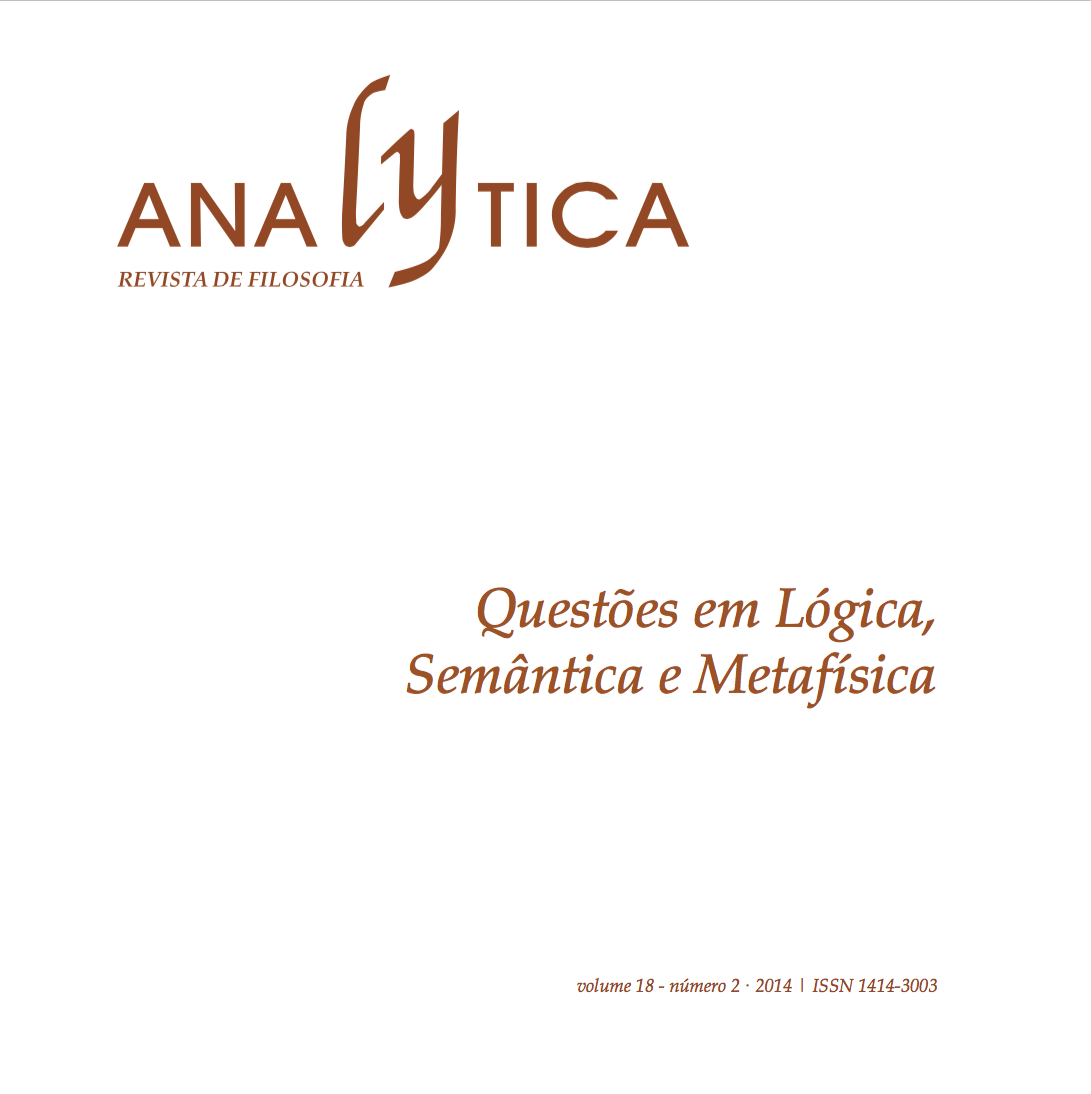Incorrigibilidade nas circunstaÌ‚ncias adequadas: “qualquer tipo de enunciado pode oferecer evideÌ‚ncias para qualquer outro tipo”
Palavras-chave:
incorrigibilidade, autoconhecimento, atenção, dados dos sentidos, John Austin, Jules Ayer, incorrigibility, self-knowledge, attention, sense dataResumo
Neste artigo, apresento a discussão entre Ayer e Austin acerca de se enunciados ou proferimentos podem ser incorrigíveis e defendo a posição de Austin, inclusive contra as objeções de Ayer posteriores à publicação de “Sense & Sensibilia”. Ao contrário do que sustentou Ayer, enunciados experienciais e enunciados de objetos materiais não são epistemicamente assimétricos. Um enunciado de objeto material pode ser incorrigível se proferido nas circunstâncias adequadas e um enunciado experiencial pode ser corrigível se proferido nas circunstâncias inadequadas. A partir da posição de Austin, sustento que o autoconhecimento não tem privilégio epistêmico em relação ao conhecimento do mundo exterior. Esses tipos de conhecimentos são igualmente dependentes de circunstâncias objetivas da situação de proferimento.
Abstract
In this paper, I present the discussion between Ayer and Austin about whether sentences or utterances can be incorrigible and I argue in favor of Austin position. I defend Austin against objections from Ayer presented after the publication of “Sense & Sensibilia”. Unlike what was sustained by Ayer, experiential sentences and material object sentences are not epistemically asymmetrical. A material object sentence can be incorrigible if uttered in the appropriated circumstances, and an experiential sentence can be corrigible if uttered in the unappropriated circumstances. Relying on Austin position, I argue that self-knowledge does not have any epistemic privilege in relation to knowledge of the external world. These kinds of knowledge equally depend on objective circumstances of the utterance situation.
Enviado em: dezembro de 2014Aprovado em: setembro de 2015
Downloads
Referências
ATWELL, J. 1966. Austin on Incorrigiblity. Philosophy and Phenomenological Research, V. 27, N. 2, pp. 261-266.
AUSTIN, J. 1962. Sense & Sensibilia. London: Oxford University Press.
AUSTIN, J. 1970. Other Minds. In: URMSON, J. O. & WARNOCK, G. J. (eds.). J. L. Austin: Philosophical Papers. London: Oxford University Press, pp. 76-116.
AYER, J. 1940. The Foundations of Empirical Knowledge. London: The MacMillan Press Ltd.
AYER, J. 1967. Has Austin refuted the sense-datum theory? Synthese, N. 17, pp. 117-140.
AYER, J. 1969. Rejoinder to Professor Forguson. In: FANN, K (ed.). Symposium on J. L. Austin. London: Routledge & Legan Paul Ltd, pp. 342-348.
DRETSKE, F. 2000. Perception, Knowledge and Belief. Cambridge: Cambridge University Press.
FUMERTON, R. 2001. Classical Foundationalism. In: DePaul, Michael (ed.). Ressurrecting Old-Fashioned Foundationalism. Boston: Rowman & Littlefield Publishers.
GOODMAN, N. 1972. Problems and Projects. New York: Bobbs-Merrill Company, Inc.
MCDOWELL, J. 1995. Knowledge and the Internal. Philosophical and Phenomenological Research, V. 55, N. 4, pp. 877-893.
MOORE, G. 1903. A Refutação do Idealismo. In: ORMIERES, G. 2004. Três Ensaios de G. E. Moore. Porto Alegre: Editora Unisinos, pp. 163-186.
MOORE, G. 1980. Prova de um mundo exterior. In: LACEY, H. (Org.). Coleção Os Pensadores: George Moore. São Paulo: Abril Cultural, pp. 115-133.
PYLYSHYN, Z. 2003. Seeing and Visualizing: It's Not What You Think. Massachusetts: MIT Press.
PUTNAM, H. 1975. Mind, Language and Reality. New York: Cambridge University Press.
SELLARS, W. 2008. Empirismo e Filosofia da Mente. Petrópolis: Editora Vozes.
WU, W. 2014. Attention. New York: Routledge.
Downloads
Publicado
Como Citar
Edição
Seção
Licença
Os autores que publicam nesta revista concordam com os seguintes termos:
- Os autores mantêm os direitos autorais e concedem à revista o direito de primeira publicação, com o trabalho simultaneamente licenciado sob a Licença Creative Commons Atribuição-SemDerivações 4.0 Internacional (CC BY-ND 4.0), que permite a redistribuição, comercial ou não comercial, desde que a obra original não seja modificada e que seja atribuído o crédito ao autor.
- Os autores têm autorização para assumir contratos adicionais separadamente para distribuição não-exclusiva da versão do trabalho publicada nesta revista (ex.: publicar em repositório institucional ou como capítulo de livro), com reconhecimento de autoria e publicação inicial nesta revista.
- Os autores têm permissão e são estimulados a publicar e distribuir seu trabalho online (ex.: em repositórios institucionais ou na sua página pessoal) a qualquer ponto antes ou durante o processo editorial, já que isso pode gerar alterações produtivas, bem como aumentar o impacto e a citação do trabalho publicado (Veja O Efeito do Acesso Livre).


